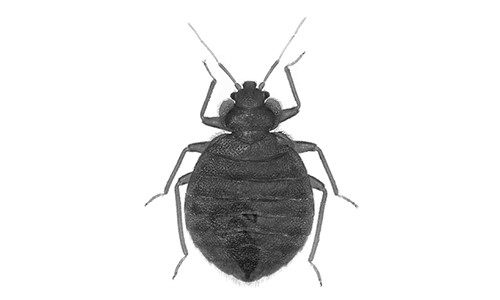Do bed bugs face an uncertain future?
29 July 2020
Bed bugs have been around for millennia but are they now facing an uncertain future due to a downturn in world travel?

Bed bugs live off human blood and need a regular supply of it to survive. This is why hotel rooms, with their constant turnover of guests, are their perfect habitat. Holiday and work travel are major spreaders of bed bugs as they transfer from people’s luggage into their homes.
Pest controllers say that bed bug infestations are one of the main reasons for their call outs. But a quick look at Google trends shows a 15% drop on searches of ‘bed bugs’ on this time last year (July 2020 compared with the same month in 2019). This could hint that numbers are declining due to the world-wide drop off in foreign travel in 2020.
In theory, a dramatic fall in numbers could result from the hotel closures. But how likely is this and does this mean the end for the bed bug?
Well, it’s unlikely. Bed bugs have been around for a long time, possibly since the dinosaurs roamed the earth, and are one of the most adaptable and resilient creatures out there.
So why is it so hard for us to win the battle with bed bugs?
They can live without food for up to a year
A bed bug trapped in an empty hotel room since March, with no humans to feed off, won’t necessarily have died off. Adults can live as long as a year without it, although they can’t reproduce again until they get a blood meal.
They are good at hiding
The bed bug’s greatest survival trick is its ability to hide in tiny crevices such as light switches, mattress seams and cracks in walls. This fools people into thinking an infestation is dealt with when all visible traces seem to have been removed.
Infestations are hard to treat
Pest controllers rate them as harder to treat than cockroaches, ants and termites. This means several follow up visits by pest controllers and ongoing detection are needed to make sure they really are eliminated.
They can scale up populations quickly
Even if you do a good job of disturbing a bed bug infestation, they can make up for lost time and repopulate quickly. Whole buildings can be infested from just a handful of bugs and sometimes even just a single female.
We thought we’d beaten them once before
Bed bugs have been around for several millennia but by the 1950s had reached record levels. The introduction of pesticides in the 60s almost led to eradication. But the wily bed bug began to develop resistance to the new chemical treatments and their populations grew again.
If they’ve really been around since the time of the dinosaurs then you wouldn’t bet on them being wiped out any time soon. But with new elimination and detection products arriving all the time, getting on top of infestations can get easier.
Hockley International offers a range of specialist formulations for the control of flying and crawling insects. You can view the full range and new innovations here.
